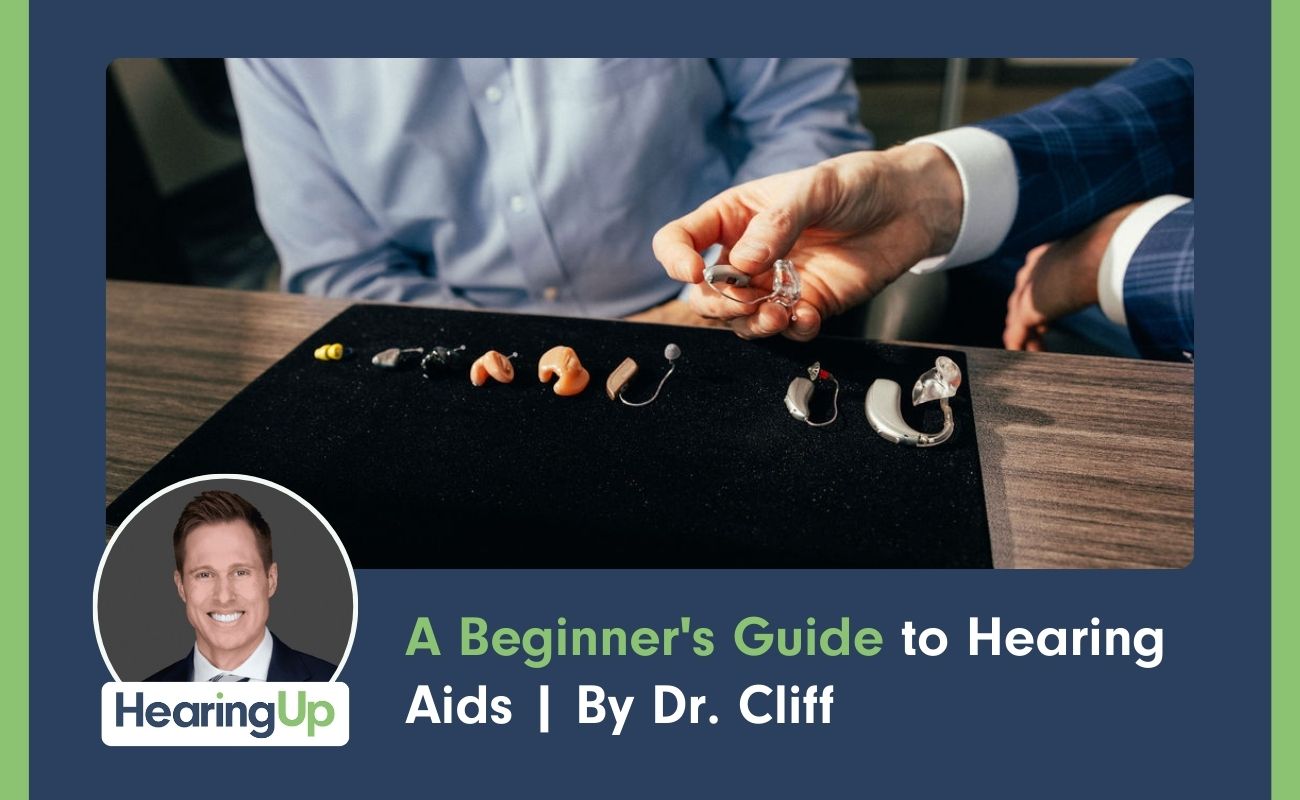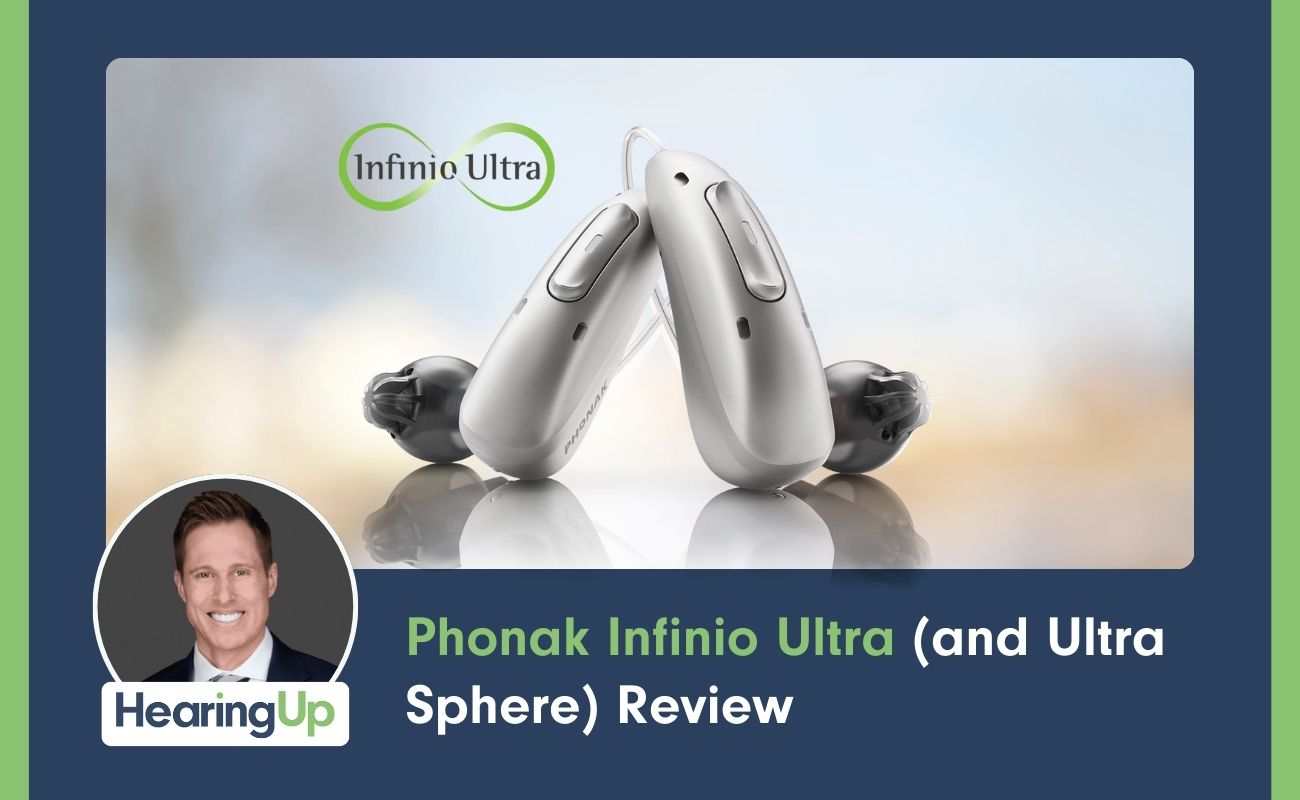The Over-the-Counter Hearing Aid Act of 2017 marked a significant shift in the hearing aid industry. It allowed individuals, especially those with mild to moderate hearing loss, to purchase hearing aids directly, bypassing traditional hearing loss centers. This move aimed to make hearing aids more accessible and affordable. However, as with any emerging market, discerning the quality of OTC hearing aids can be challenging.
The decision between OTC and prescription hearing aids should be based on individual needs and the severity of hearing loss. Prescription hearing aids, fitted by licensed audiologists, are ideal for severe hearing loss or specific auditory needs, offering custom fits and advanced features. OTC hearing aids, on the other hand, are suitable for mild to moderate hearing loss and are a cost-effective solution for those new to hearing aids or seeking a more straightforward device.
The advent of OTC hearing aids like Sony's CRE-E10 and CRE-C10 models represents a significant development in hearing care, offering quality, affordability, and accessibility. When choosing an OTC hearing aid, consider factors such as size, price, build quality, sound quality, customization capabilities, and customer support. Remember, while OTC hearing aids are a great solution for many, they are not a one-size-fits-all remedy, especially for those with severe hearing loss or unique auditory requirements.
Both of these are technically over-the-counter hearing aids, but that's where the similarities end. We have waited years to finally have guidelines that define exactly what an over-the-counter hearing aid is. Prior to October 17th, 2022, the direct-to-consumer hearing aid market was a lot more like the Wild West. That was more likely to take advantage of you than to actually help you hear better. Unfortunately, even after the release of the final OTC hearing aid guidelines, we're still seeing some online companies selling cheap devices pretending that they're legitimate OTC hearing aids. And even worse, the FDA has not cracked down on any of the scam hearing aid companies out there that are trying to capitalize on the new legitimacy of over-the-counter hearing aids. This means that unless you're careful, you could go online to purchase what you believe to be a high quality over-the-counter hearing aid, only to find out that it's not very good at all and it hardly provides you with any benefit.
That's why I wanted to make this video talking about five things that you need to look for to make sure that you're getting a quality over the counter hearing aid. But real quick before we get started, a huge shout out to Sony for sponsoring today's video. In 2022 WS Audiology partnered with Sony to develop the Sony CRE-E10 and the Sony CRE-C10 self fitting over-the-counter hearing aids. Not only are these self fitting OTC hearing aids developed by a name brand that you can trust, but they are some of the highest quality OTC devices currently available on the market. The CRE-C10's are Sony's invisible in the canal, self fitting OTC hearing aids that are designed not to be seen while you're wearing them. The CRE-E10's are Sony's sleek wireless earbud style device that allows you to stream Bluetooth audio directly into your ears from your smart device.
If you would like to check out these Sony self fitting over-the-counter hearing aids, I will have a link to them in the description as well as a link to their tech support. That being said, let's get into the first major difference of a high quality over-the-counter hearing aid versus a low quality over-the-counter hearing aid, and that is the size. Now, I know that size doesn't always matter, but higher quality over-the-counter hearing aids are typically built with more advanced and smaller components, which allows those devices to be much smaller than the lower quality devices. Just take a look at the side-by-side comparison of these two different hearing aids purchased online. You see a clear difference in size between the Sony OTC hearing aids and the other lower quality devices. This is largely due to the miniaturization of the components in the more high quality hearing aid.
Now, if you're the type of person that wants your hearing aids to be as invisible as possible, you're gonna want to look for the smallest device, which will also likely be the more high quality device. Let me go ahead and give you the perspective of what these devices look inside of my ear. I have the lower quality device in my right ear and the higher quality device in my left ear. So this is the lower quality device right here, and this is the higher quality device. So you tell me which one you feel like is more invisible. I'd like to know in the comment section below. This size difference typically stands true for the receiver in canal and behind the ear over-the-counter hearing aid options. The second major difference between a high quality over-the-counter hearing aid and a lower quality over-the-counter hearing aid is of course the price.
Getting the cost of hearing aids to come down was one of the major goals of the Over-the-Counter Hearing Aid Act, and as of right now, it has worked. On average prescription hearing aids will cost you around $4,700 for a pair, and yes, that does come with professional audiologic care. Most of the higher quality over-the-counter hearing aid options out there will range anywhere between $700 for a pair and $3,000 for a pair. If you see a pair of hearing aids that cost below $250 for a pair, there is a chance that you're not even buying an official over-the-counter hearing aid, and it could just be a generic amplifier. If you buy ones like these that I purchased online for about $55, chances are you're not gonna be very happy with it because you're not gonna hear very well. Now, I'm sure that you were taught this by your parents as a young child, but just like anything that you buy, you typically get what you pay for.
The third major difference between a high quality over-the-counter hearing aid and a low quality over-the-counter hearing aid is the build quality. High quality OTC hearing aids like the Sony CRE-C10's typically have a similar build quality to that of prescription hearing aids. Not only is the quality of the plastic much better than a cheaper hearing aid because it follows all of the same hypoallergenic rules for prescription hearing aids, but the way that their components interact together is much better as well. For instance, the battery doors on a high quality over-the-counter hearing aid open and close nice and smoothly without any issues. On top of that, the rubber domes or sleeves that you use with a high quality over-the-counter hearing aid typically attach much more securely so they don't pop off inside of your ears while you're wearing them. However, before I even attempted to wear this cheaper set of over-the-counter hearing aids, I actually bent the battery contacts because the components do not fit together very well, and the domes I can hardly get them to attach in a way that they won't come off inside of my ears.
I have a feeling that urgent cares are gonna be very busy digging domes out of people's ears because they purchased cheaper quality over the counter devices. All right, guys. Hopefully you're enjoying this video so far. If you are, make sure that you hit that like button. It really helps up my channel, and if you have not yet subscribed to the channel with notifications turned on, go ahead and do that as well if you wanna learn more about these over-the-counter hearing aids and even prescription hearing aids. That being said, I really appreciate it and I'll just go ahead and get back to the video. The fourth difference between a high quality over-the-counter hearing aid and a low quality over-the-counter hearing aid is performance self fitting over the counter hearing aid performance typically comes down to the quality of the components, including the processor chip and your ability to self adjust those devices.
Many of the lower quality devices purchased online are not truly self fitting, which means that your ability to customize them is extremely limited. I just got done explaining how the components inside of quality over the counter hearing aids are so much better than lower quality devices, but they also give you a better ability to make adjustments other than just increasing and decreasing volume. In my opinion, all of the quality over the counter hearing aids currently available on the market give you the ability to self fit your devices after having your hearing checked. They do this by checking your hearing thresholds, using in situ audiometry through the OTC hearing aids with a smartphone app that will initially set up your devices. There is also typically an added layer of safety built into these apps because they can detect if you have more than a mild to moderate hearing loss or have an asymmetry and recommend that you see a hearing care professional.
If you're still good to go after checking your thresholds inside of the app, then you can continue customizing your audio based on your perception. Typically, the lower quality devices do not give you the ability to self-check your hearing, and they only have limited adjustments like a volume wheel that increases the volume or decreases the volume, and if they do happen to have an app, the adjustments that you make don't really translate to you hearing any better. This means that not only will a lot of these lower quality devices give you poor sound quality, but they might not even be capable of amplifying sound up to the levels that you need with a mild to moderate hearing loss. And correct me if I'm wrong, but isn't the whole point of treating your hearing loss to actually get better hearing? And the fifth and final difference between a high quality over-the-counter hearing aid and a lower quality over-the-counter hearing aid is the amount of customer support that you receive at this point.
Every single high quality over-the-counter hearing aid company has customer service support that can help you if you're having issues with their devices. In fact, this is one of the largest differences that I've identified between high quality and low quality OTC hearing aid companies. When you have actual support from the company that you purchased your devices from, your success with those devices goes up significantly, and for whatever reason, if you do not have success with these particular hearing aids, a high quality over-the-counter hearing aid company will actually give you a refund rather than making you jump through a bunch of hoops. Now, the caliber of customer service also matters here. The higher quality over-the-counter hearing aid companies typically have a better trained staff on hand that can assist you with their specific devices and help you optimize your performance. For instance, companies like Sony have trained audiologists on staff, so if things progress to a point where you're not having a whole lot of success with their OTC hearing aids, you can actually get support from someone who knows what they're talking about. Many of the lower quality over-the-counter hearing aid companies out there will outsource all of their customer service support to people who have no clue how to work with their particular OTC hearing aids, and therefore, they provide you with little to no help. If it ultimately turns out that over the counter hearing aids are not appropriate for you, the higher quality companies will refer you to a local hearing care professional for you to go the prescriptive route. The lower quality OTC
companies, in my experience, will typically just tell you to purchase a different device that they have to sell you. All right, there you go. Those are the five key differences that I've identified between high quality, over-the-counter hearing aids, and all of the other junk that you can purchase online. At the end of the day, I hope that you understanding these differences will help you identify a higher quality over-the-counter hearing aid so you can increase your chances of hearing success.
Both of these are technically over-the-counter hearing aids, but that's where the similarities end. We have waited years to finally have guidelines that define exactly what an over-the-counter hearing aid is. Prior to October 17th, 2022, the direct-to-consumer hearing aid market was a lot more like the Wild West. That was more likely to take advantage of you than to actually help you hear better. Unfortunately, even after the release of the final OTC hearing aid guidelines, we're still seeing some online companies selling cheap devices pretending that they're legitimate OTC hearing aids. And even worse, the FDA has not cracked down on any of the scam hearing aid companies out there that are trying to capitalize on the new legitimacy of over-the-counter hearing aids. This means that unless you're careful, you could go online to purchase what you believe to be a high quality over-the-counter hearing aid, only to find out that it's not very good at all and it hardly provides you with any benefit.
That's why I wanted to make this video talking about five things that you need to look for to make sure that you're getting a quality over the counter hearing aid. But real quick before we get started, a huge shout out to Sony for sponsoring today's video. In 2022 WS Audiology partnered with Sony to develop the Sony CRE-E10 and the Sony CRE-C10 self fitting over-the-counter hearing aids. Not only are these self fitting OTC hearing aids developed by a name brand that you can trust, but they are some of the highest quality OTC devices currently available on the market. The CRE-C10's are Sony's invisible in the canal, self fitting OTC hearing aids that are designed not to be seen while you're wearing them. The CRE-E10's are Sony's sleek wireless earbud style device that allows you to stream Bluetooth audio directly into your ears from your smart device.
If you would like to check out these Sony self fitting over-the-counter hearing aids, I will have a link to them in the description as well as a link to their tech support. That being said, let's get into the first major difference of a high quality over-the-counter hearing aid versus a low quality over-the-counter hearing aid, and that is the size. Now, I know that size doesn't always matter, but higher quality over-the-counter hearing aids are typically built with more advanced and smaller components, which allows those devices to be much smaller than the lower quality devices. Just take a look at the side-by-side comparison of these two different hearing aids purchased online. You see a clear difference in size between the Sony OTC hearing aids and the other lower quality devices. This is largely due to the miniaturization of the components in the more high quality hearing aid.
Now, if you're the type of person that wants your hearing aids to be as invisible as possible, you're gonna want to look for the smallest device, which will also likely be the more high quality device. Let me go ahead and give you the perspective of what these devices look inside of my ear. I have the lower quality device in my right ear and the higher quality device in my left ear. So this is the lower quality device right here, and this is the higher quality device. So you tell me which one you feel like is more invisible. I'd like to know in the comment section below. This size difference typically stands true for the receiver in canal and behind the ear over-the-counter hearing aid options. The second major difference between a high quality over-the-counter hearing aid and a lower quality over-the-counter hearing aid is of course the price.
Getting the cost of hearing aids to come down was one of the major goals of the Over-the-Counter Hearing Aid Act, and as of right now, it has worked. On average prescription hearing aids will cost you around $4,700 for a pair, and yes, that does come with professional audiologic care. Most of the higher quality over-the-counter hearing aid options out there will range anywhere between $700 for a pair and $3,000 for a pair. If you see a pair of hearing aids that cost below $250 for a pair, there is a chance that you're not even buying an official over-the-counter hearing aid, and it could just be a generic amplifier. If you buy ones like these that I purchased online for about $55, chances are you're not gonna be very happy with it because you're not gonna hear very well. Now, I'm sure that you were taught this by your parents as a young child, but just like anything that you buy, you typically get what you pay for.
The third major difference between a high quality over-the-counter hearing aid and a low quality over-the-counter hearing aid is the build quality. High quality OTC hearing aids like the Sony CRE-C10's typically have a similar build quality to that of prescription hearing aids. Not only is the quality of the plastic much better than a cheaper hearing aid because it follows all of the same hypoallergenic rules for prescription hearing aids, but the way that their components interact together is much better as well. For instance, the battery doors on a high quality over-the-counter hearing aid open and close nice and smoothly without any issues. On top of that, the rubber domes or sleeves that you use with a high quality over-the-counter hearing aid typically attach much more securely so they don't pop off inside of your ears while you're wearing them. However, before I even attempted to wear this cheaper set of over-the-counter hearing aids, I actually bent the battery contacts because the components do not fit together very well, and the domes I can hardly get them to attach in a way that they won't come off inside of my ears.
I have a feeling that urgent cares are gonna be very busy digging domes out of people's ears because they purchased cheaper quality over the counter devices. All right, guys. Hopefully you're enjoying this video so far. If you are, make sure that you hit that like button. It really helps up my channel, and if you have not yet subscribed to the channel with notifications turned on, go ahead and do that as well if you wanna learn more about these over-the-counter hearing aids and even prescription hearing aids. That being said, I really appreciate it and I'll just go ahead and get back to the video. The fourth difference between a high quality over-the-counter hearing aid and a low quality over-the-counter hearing aid is performance self fitting over the counter hearing aid performance typically comes down to the quality of the components, including the processor chip and your ability to self adjust those devices.
Many of the lower quality devices purchased online are not truly self fitting, which means that your ability to customize them is extremely limited. I just got done explaining how the components inside of quality over the counter hearing aids are so much better than lower quality devices, but they also give you a better ability to make adjustments other than just increasing and decreasing volume. In my opinion, all of the quality over the counter hearing aids currently available on the market give you the ability to self fit your devices after having your hearing checked. They do this by checking your hearing thresholds, using in situ audiometry through the OTC hearing aids with a smartphone app that will initially set up your devices. There is also typically an added layer of safety built into these apps because they can detect if you have more than a mild to moderate hearing loss or have an asymmetry and recommend that you see a hearing care professional.
If you're still good to go after checking your thresholds inside of the app, then you can continue customizing your audio based on your perception. Typically, the lower quality devices do not give you the ability to self-check your hearing, and they only have limited adjustments like a volume wheel that increases the volume or decreases the volume, and if they do happen to have an app, the adjustments that you make don't really translate to you hearing any better. This means that not only will a lot of these lower quality devices give you poor sound quality, but they might not even be capable of amplifying sound up to the levels that you need with a mild to moderate hearing loss. And correct me if I'm wrong, but isn't the whole point of treating your hearing loss to actually get better hearing? And the fifth and final difference between a high quality over-the-counter hearing aid and a lower quality over-the-counter hearing aid is the amount of customer support that you receive at this point.
Every single high quality over-the-counter hearing aid company has customer service support that can help you if you're having issues with their devices. In fact, this is one of the largest differences that I've identified between high quality and low quality OTC hearing aid companies. When you have actual support from the company that you purchased your devices from, your success with those devices goes up significantly, and for whatever reason, if you do not have success with these particular hearing aids, a high quality over-the-counter hearing aid company will actually give you a refund rather than making you jump through a bunch of hoops. Now, the caliber of customer service also matters here. The higher quality over-the-counter hearing aid companies typically have a better trained staff on hand that can assist you with their specific devices and help you optimize your performance. For instance, companies like Sony have trained audiologists on staff, so if things progress to a point where you're not having a whole lot of success with their OTC hearing aids, you can actually get support from someone who knows what they're talking about. Many of the lower quality over-the-counter hearing aid companies out there will outsource all of their customer service support to people who have no clue how to work with their particular OTC hearing aids, and therefore, they provide you with little to no help. If it ultimately turns out that over the counter hearing aids are not appropriate for you, the higher quality companies will refer you to a local hearing care professional for you to go the prescriptive route. The lower quality OTC
companies, in my experience, will typically just tell you to purchase a different device that they have to sell you. All right, there you go. Those are the five key differences that I've identified between high quality, over-the-counter hearing aids, and all of the other junk that you can purchase online. At the end of the day, I hope that you understanding these differences will help you identify a higher quality over-the-counter hearing aid so you can increase your chances of hearing success.

Hearing aid success requires 90-min evaluations, Real Ear Measurement programming, appropriate tech selection, 30-day adaptation and ongoing professional follow-up.
Read More
Phonak Infinio Ultra firmware adds AutoSense OS 7.0 (24% better), 30% improved battery (10hrs with AI), simplified Bluetooth pairing, and faster feedback tests.
Read More
Starkey Omega AI improves on Edge AI with DNN 360 (19.6% better speech clarity), spatial awareness, find-my-hearing-aid lights, and 20x stronger custom shells.
Read More
AirPods Pro 3 with iOS 18.1+ offer clinical-grade hearing aid features for mild-moderate loss, including built-in testing, custom amplification, and audiogram uploads.
Read More
Top 2026 RIC hearing aids: Phonak Ultra Sphere Infinio (AI noise reduction), Starkey Omega AI, Oticon Intent, Signia IX, Widex SmartRIC.
Read More
Best 2026 invisible aids: Oticon Zeal (AI/Auracast), Phonak Lyric (self-replace), Starkey IIC (minimal), Phonak Titanium (durable), Oticon Own (AI processing).
Read More